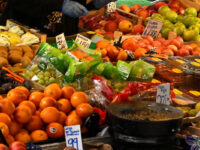
With food recalls on the rise, SAI Global is urging food manufacturers and retailers to exercise a better food safety management systems to decrease product recalls.
There were 106 recalls in 2018-19, compared with 81 in 2017-18 and 61 in 2016-17, with SAI Global pointing to weak supply chain management as a major factor.
“Food has never been a more global, fast-moving and complex market than it is today. When a food crosses borders of any kind, the familiar health and safety risks are joined by several others, including intentional and inadvertent adulteration, product mislabelling, substitution, spoilage due to any unforeseen [circumstances], damage while in transit and unpredictable politics and shifts in regulations.” SAI Global food safety spokesperson Maidie Wood said.
“Food manufacturers need to be continually rethinking their controls, monitor their indirect suppliers and implement key performance indicators to manage downstream supply risks.”
SAI Global advised businesses to listen to consumers who are looking for high ethical standards when it comes to the sourcing and manufacturing of food.
The risk management company highlighted technology as a good way to build greater transparency. Sensors can detect temperature changes and smart packaging changes colour based on expiry dates to give manufacturers greater control over potential risks.
The company also advised setting key performance indicators for suppliers. One way to motivate suppliers is to recognise them with awards for producing the highest quality products, on-time delivery and excellent service.
Businesses should also monitor indirect suppliers. SAI Global said it’s challenging to monitor end-to-end supply chain and manufacturers who source from anywhere have greater risk of losing control of their supplier relationships. This is where monitoring of indirect suppliers comes into play. They should decide who to target and how far to go based on the relative risks associated with the ingredients or products being sourced, such as country of origin.
A supplier diversity management program provides a diverse supply chain to secure the inclusion of different groups. The program can introduce innovation through new products, services and solutions, and allow a company to explore new opportunities for business expansion.
Companies are also advised to have food safety training and certification such as HACCP certification. SAI Global encourages food manufacturers and retailers to get certified to meet internationally recognised food safety standards such as SQF, FSSC, ISO 22000, BRCGS and IFS which all incorporate HACCP.














